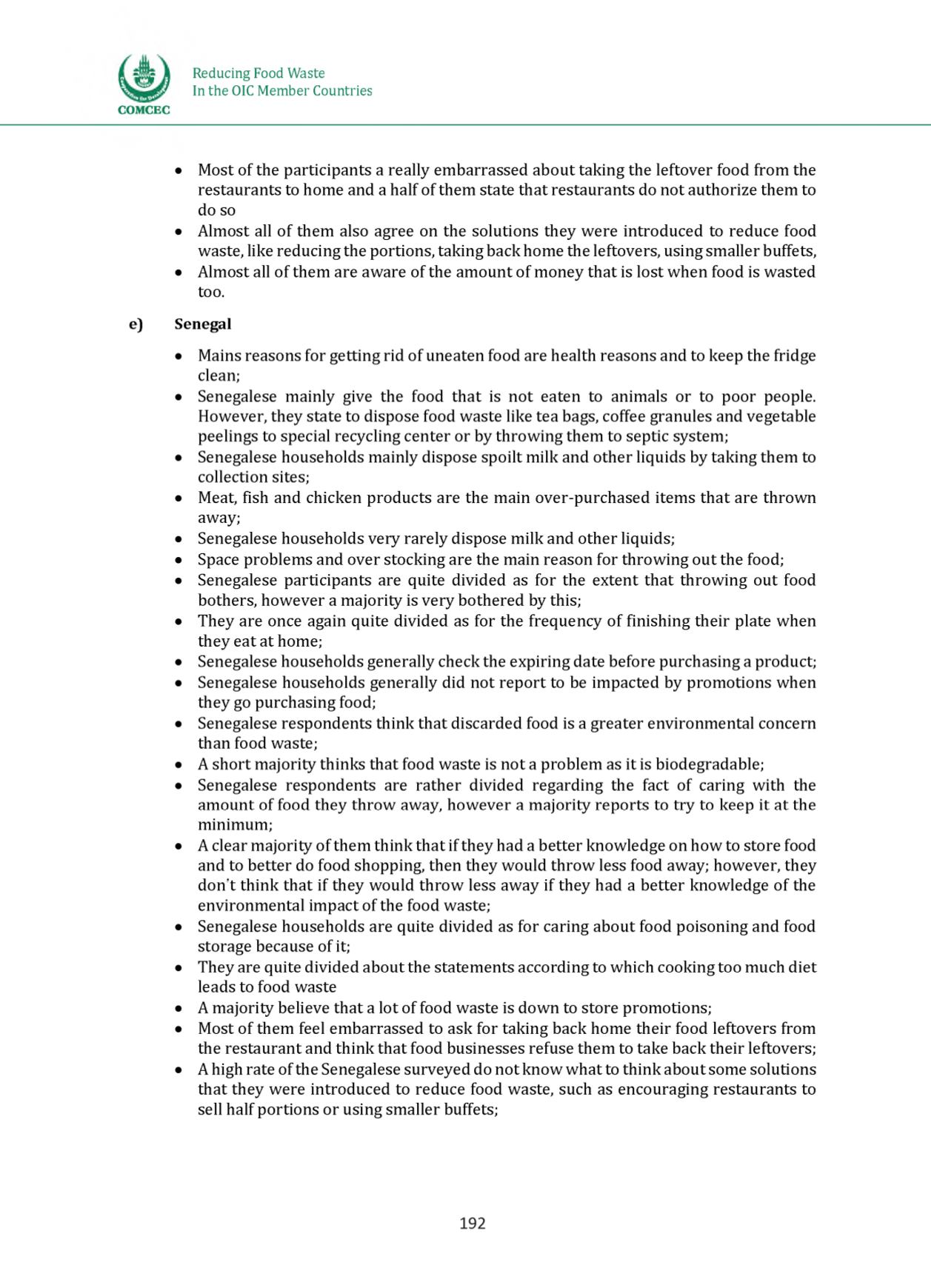

Reducing Food Waste
In the OIC Member Countries
COMCEC
• Most of the participants a really embarrassed abou t tak ing the leftover food from the
restaurants to home and a ha lf of them state tha t restaurants do no t authorize them to
do so
• A lmost all o f them also agree on the solutions they were in troduced to reduce food
waste, like reducing the portions, tak ing back home the leftovers, using smaller buffets,
• A lmost all o f them are aware of the am o u n t o f m oney tha t is lost w hen food is wasted
too.
e)
Senegal
• Mains reasons for getting rid o f uneaten food are health reasons and to keep the fridge
clean;
• Senegalese m a in ly give the food th a t is n o t eaten to animals or to poor people.
However, they state to dispose food waste like tea bags, coffee granules and vegetable
peelings to special recycling center or by throw ing them to septic system;
• Senegalese households m a in ly dispose spoilt m ilk and other liquids by tak ing them to
collection sites;
• Meat, fish and chicken products are the m a in over-purchased items th a t are thrown
away;
• Senegalese households very rarely dispose m ilk and other liquids;
• Space problems and over stocking are the m a in reason for throw ing ou t the food;
• Senegalese participants are quite divided as for the extent tha t throw ing ou t food
bothers, however a majority is very bothered by this;
• They are once again quite divided as for the frequency o f finish ing their plate when
they eat at home;
• Senegalese households generally check the expiring date before purchasing a product;
• Senegalese households generally did no t repo rt to be im pacted by p rom otions when
they go purchasing food;
• Senegalese respondents th ink tha t discarded food is a greater environmental concern
than food waste;
• A short majority thinks tha t food waste is n o t a prob lem as it is biodegradable;
• Senegalese respondents are rather divided regarding the fact of caring w ith the
am o u n t of food they th row away, however a m ajority reports to try to keep it a t the
m in im um ;
• A clear majority o f them th ink tha t if they had a better know ledge on h ow to store food
and to better do food shopping, then they w ou ld th row less food away; however, they
don 't th ink tha t if they w ou ld th row less away if they had a better know ledge o f the
environmental im pac t of the food waste;
• Senegalese households are quite divided as for caring abou t food poisoning and food
storage because of it;
• They are quite divided abou t the statements according to which cooking too m uch diet
leads to food waste
• A majority believe tha t a lo t of food waste is dow n to store promotions;
• Most o f them feel embarrassed to ask for tak ing back home their food leftovers from
the restaurant and th ink tha t food businesses refuse them to take back their leftovers;
• A high rate of the Senegalese surveyed do n o t know w h a t to th ink abou t some solutions
tha t they were in troduced to reduce food waste, such as encouraging restaurants to
sell ha lf portions or using smaller buffets;
192
















